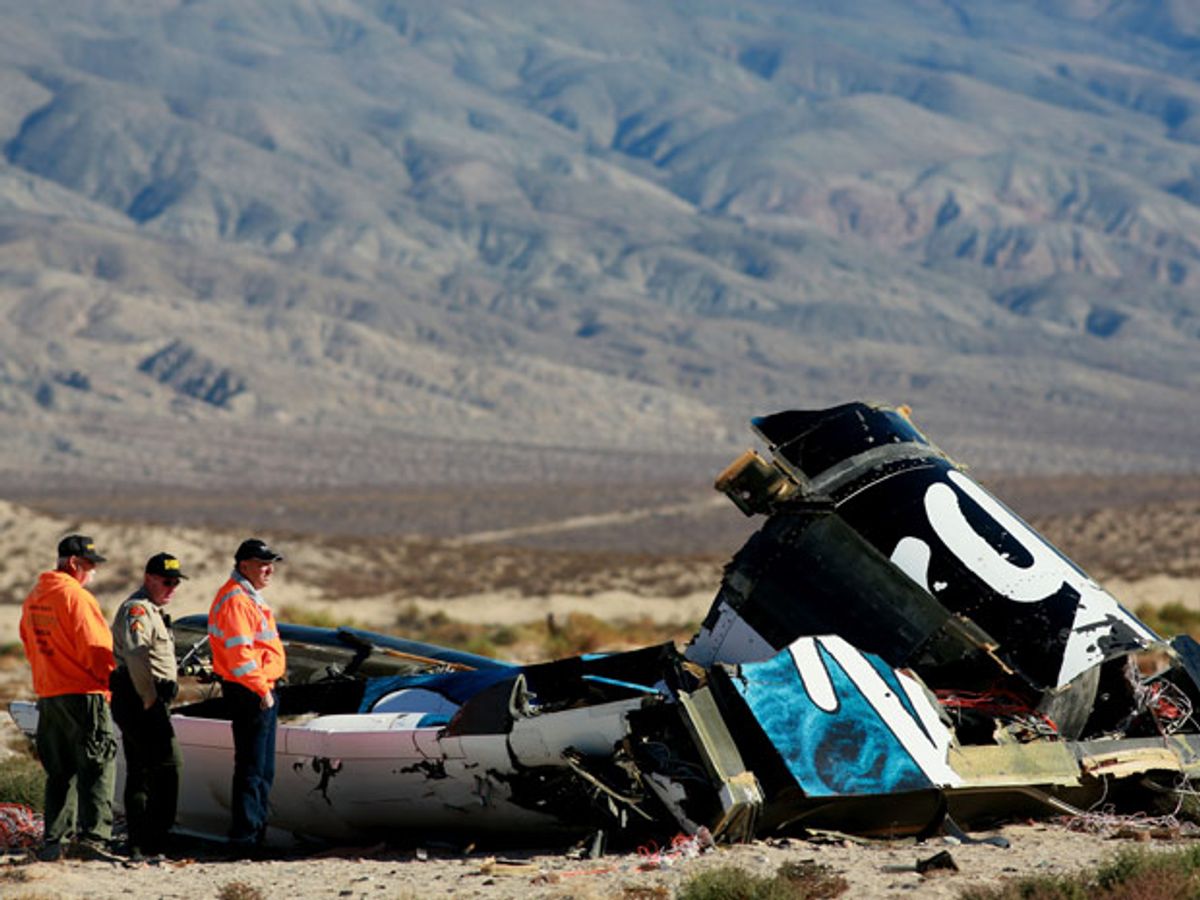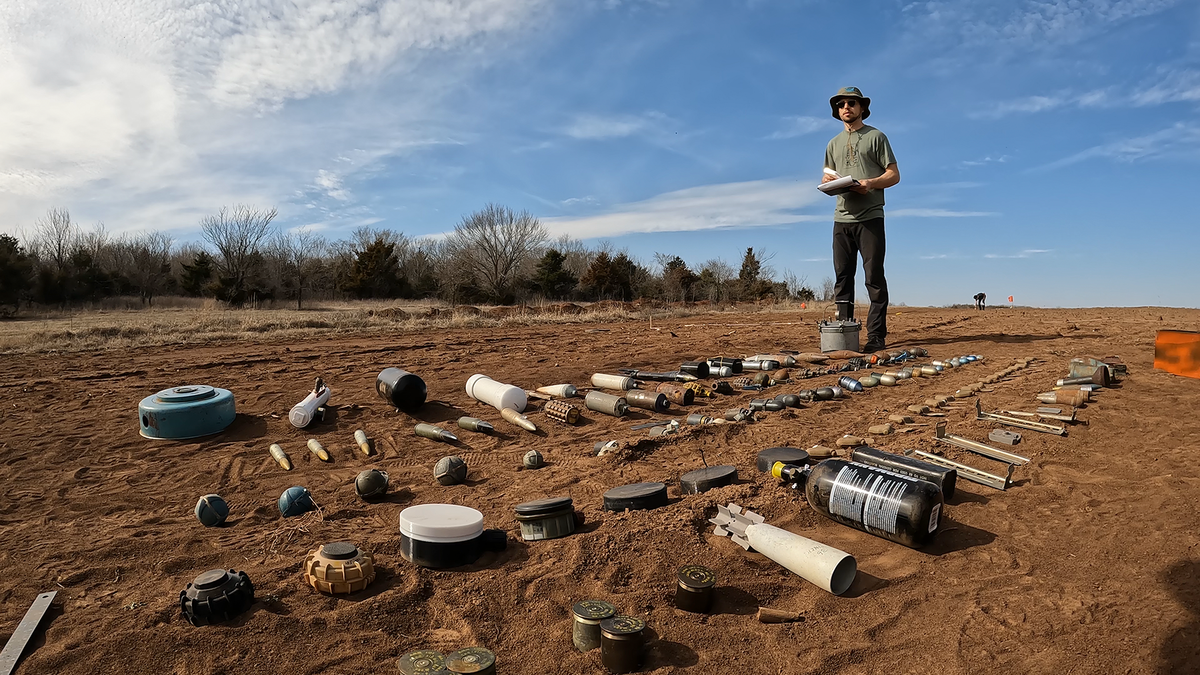Last Friday, Virgin Galactic’s SpaceShipTwo, a rocket-powered craft designed to take passengers to the outer edge of Earth’s atmosphere, crashed to Earth, killing one pilot and critically injuring another.
A lot has happened in the week since. After initial rumors of an explosion, the U.S. National Transportation Safety Board (NTSB), which is investigating the accident, determined that co-pilot Mike Alsbury prematurely released the spaceship’s feathered tails, which boost stability and drag during reentry, at a particularly dangerous point in the flight.
The NTSB has since expanded the scope of their investigation to include potential human factors, such as cockpit design and pilot training. At the same time, there’s been buzz about Virgin Galactic’s safety culture. Doug Messier, a writer who witnessed the accident, said in a vivid recent account for Outside magazine that safety experts told him Virgin’s testing schedule, with just a few test flights before taking paying passengers, was overly aggressive.
We may be months or even a year away from a definitive conclusion on the cause or causes of the accident. But regardless of how the investigation plays out, this is a setback for Virgin Galactic. And it invites new scrutiny of the suborbital space industry.
The U.S. government has actually held back from detailed oversight of the space tourism industry. In 2004, the U.S. Congress passed the Commercial Space Launch Amendments Act, which barred the Federal Aviation Administration from instituting spacecraft design or operational regulations (except in case of serious or fatal injury or a serious accident). Advocates say the intent of the provision is to protect a fledgling industry. It was extended in 2012 and is now set to expire in October 2015.
George Nield, who heads up the FAA’s Office of Commercial Space Transportation, came out months ago against another extension. And he might get his wish. “I think when the end of the moratorium comes in 2015, Congress will not renew it,” says space law attorney Michael Listner.
It will be a tough balancing act. So far, Virgin Galactic is the only private firm to have started an ongoing program of piloted suborbital flights, and they’re still just experimental ones. It’s unclear how much data the government will be able to feed into regulations. Chances are the results of the NTSB investigation will help inform new rules. But Listner says there is the danger that the government could swing too far in the pursuit of better safety, and that the same goes for the space tourism industry itself: “if they go out and just go crazy on this, they’re going to kill the industry on their own.”
Virgin Galactic has big plans for its business; it has talked about the possiblity of moving beyond space tourism to zippy, point-to-point travel that could take passengers halfway around the Earth in just a few hours. But for now, there are big open questions about its future.
“The real issue for Virgin Galactic is do they have sufficient resources to respond to whatever the investigation turns up,” says Scott Pace, director of the Space Policy Institute at George Washington University in Washington, DC. “Do they have the manufacturing resources to do a safe return to flight and complete the rest of their test program?”
Virgin also faces competition. XCOR Aerospace, for example, is hard at work on its Lynx rocket plane, also under construction at the Mojave Air and Space Port, where SpaceShipTwo was tested. Lynx is designed to take off from the ground and, as of the beginning of last month, slated to begin test flights next year. Virgin says it has a second ship that is 65% complete and could potentially start test flights in 2015 as well.
Rachel Courtland, an unabashed astronomy aficionado, is a former senior associate editor at Spectrum. She now works in the editorial department at Nature. At Spectrum, she wrote about a variety of engineering efforts, including the quest for energy-producing fusion at the National Ignition Facility and the hunt for dark matter using an ultraquiet radio receiver. In 2014, she received a Neal Award for her feature on shrinking transistors and how the semiconductor industry talks about the challenge.



